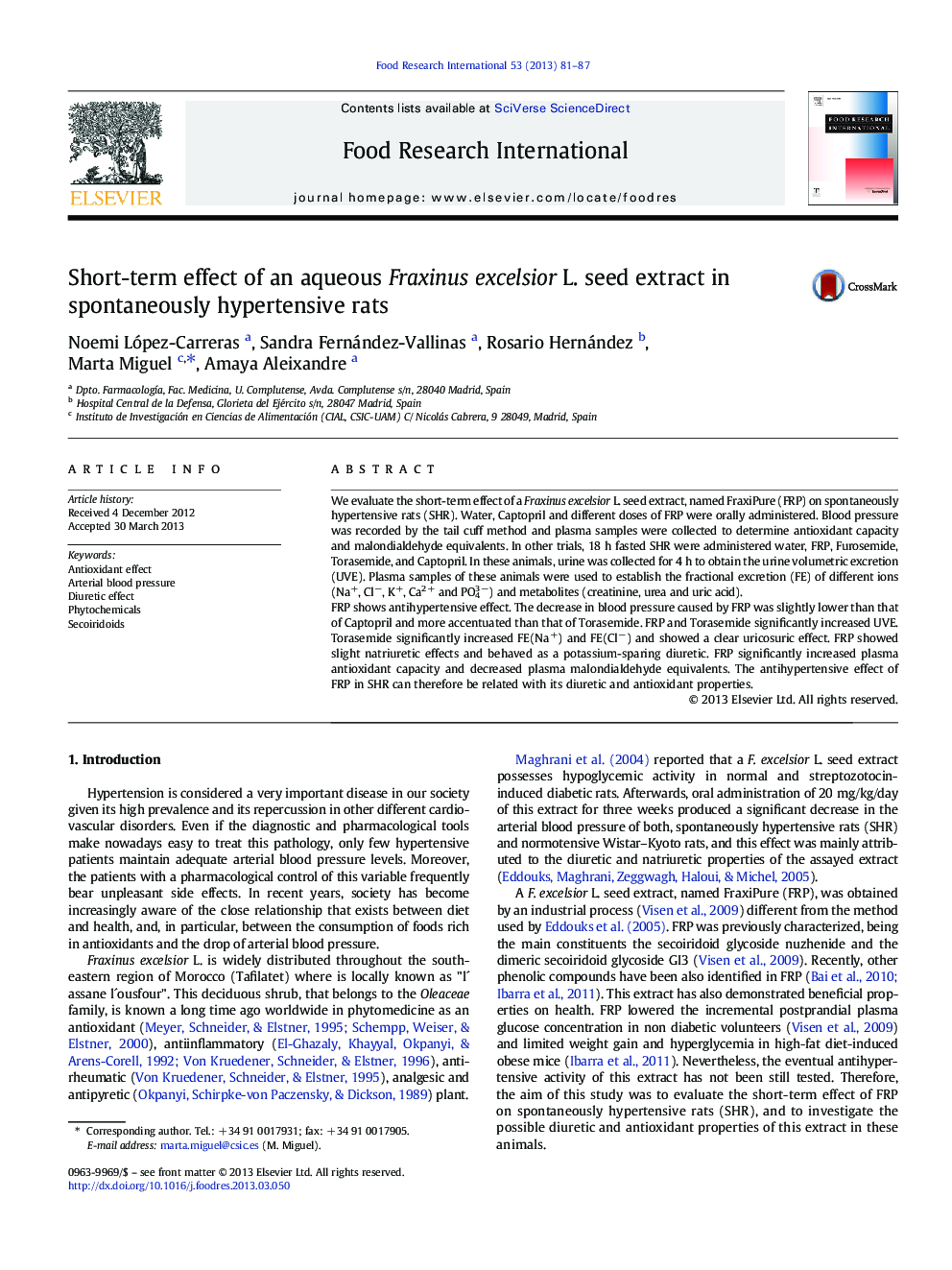| Article ID | Journal | Published Year | Pages | File Type |
|---|---|---|---|---|
| 6397671 | Food Research International | 2013 | 7 Pages |
â¢Fraxinus excelsior L. seed extract (FRP) shows antihypertensive effect.â¢FRP did not modify systolic blood pressure in Wistar-Kyoto rats.â¢FRP increased plasma antioxidant capacity and decreased plasma malondialdehyde.â¢FRP increased the urine volumetric excretion compared to the negative control group.â¢FRP showed slight natriuretic effects and behaved as a potassium-sparing diuretic.
We evaluate the short-term effect of a Fraxinus excelsior L. seed extract, named FraxiPure (FRP) on spontaneously hypertensive rats (SHR). Water, Captopril and different doses of FRP were orally administered. Blood pressure was recorded by the tail cuff method and plasma samples were collected to determine antioxidant capacity and malondialdehyde equivalents. In other trials, 18Â h fasted SHR were administered water, FRP, Furosemide, Torasemide, and Captopril. In these animals, urine was collected for 4Â h to obtain the urine volumetric excretion (UVE). Plasma samples of these animals were used to establish the fractional excretion (FE) of different ions (Na+, Clâ, K+, Ca2Â + and PO43Â â) and metabolites (creatinine, urea and uric acid).FRP shows antihypertensive effect. The decrease in blood pressure caused by FRP was slightly lower than that of Captopril and more accentuated than that of Torasemide. FRP and Torasemide significantly increased UVE. Torasemide significantly increased FE(Na+) and FE(Clâ) and showed a clear uricosuric effect. FRP showed slight natriuretic effects and behaved as a potassium-sparing diuretic. FRP significantly increased plasma antioxidant capacity and decreased plasma malondialdehyde equivalents. The antihypertensive effect of FRP in SHR can therefore be related with its diuretic and antioxidant properties.
Graphical abstractDownload full-size image
